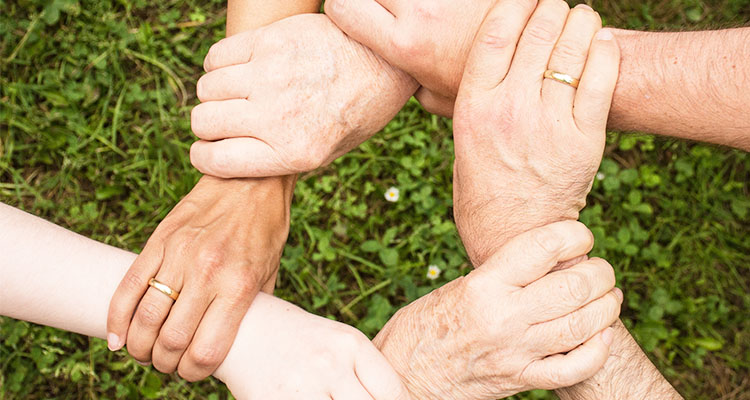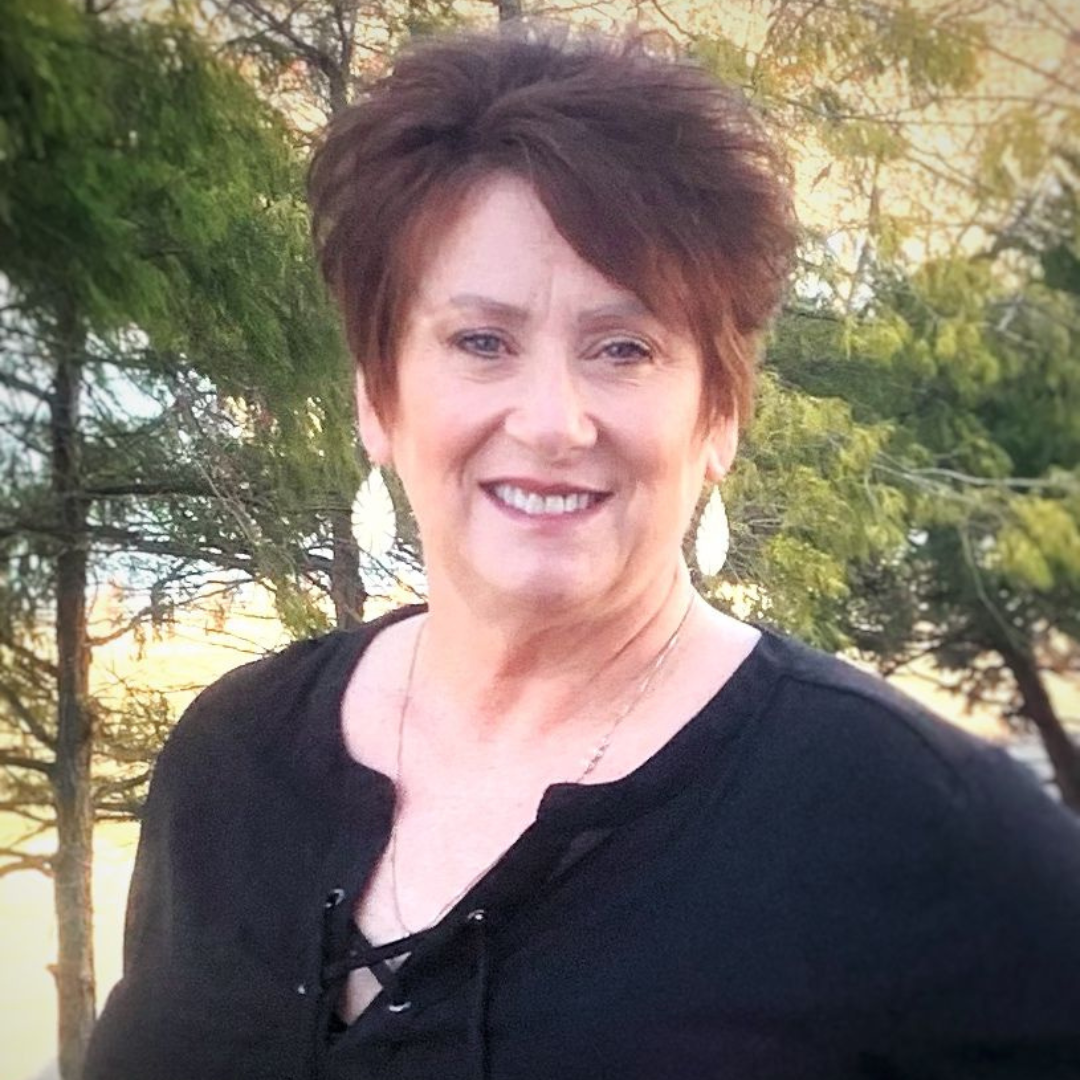“People are making positive choices every single day when they walk through our doors,” says Mary Hess, executive director of the Unity Center in Benwood. The Unity Center is a place of community, support and education for those in recovery from substance use. Mary sees plenty of people who choose to do the next right thing, one day at a time.
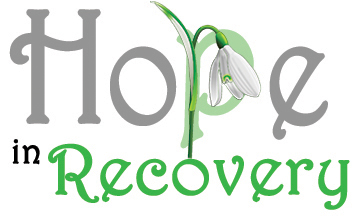 There’s a lot of talk these days about the negative choices that contribute to addiction, but we don’t hear as frequently about the positive decisions that lead to recovery. Over 23 million individuals in the United States choose recovery each day and have been successful on their journeys, some of them for many years at a time.
There’s a lot of talk these days about the negative choices that contribute to addiction, but we don’t hear as frequently about the positive decisions that lead to recovery. Over 23 million individuals in the United States choose recovery each day and have been successful on their journeys, some of them for many years at a time.
“Locally, we see about 400 people at the Unity Center each week. We offer 20 recovery meetings of all types — all options need to be available if we’re going to make an impact. Recovery is not one-size-fits-all,” Mary said. “But recovery is possible.”
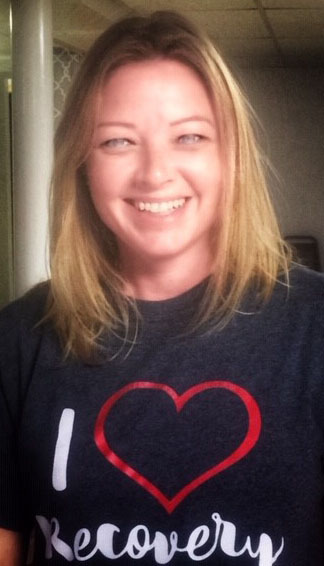
There are thousands of local residents who have quietly made peace with their demons and have done the necessary work to change their habits and their lives. We interact with them every day, although we may not realize it. That’s because many of them choose to keep their recovery secret lest they suffer the consequences of the stigma that surrounds addiction even when users have moved beyond it.
EXECUTIVE DIRECTOR MARY HESS
Mary knows about recovery first-hand, having recently celebrated 15 years of sobriety. It’s clearly a cause that she is passionate about, and her passion reveals itself in the energy and enthusiasm she brings to her position. Mary holds a degree in business operations management and has served as executive director for over two years.
Until last year, the group operated from its former location in an old church in Center Wheeling. One of Mary’s first tasks after being hired was to prepare a cost analysis of renovating the group’s Wheeling location. Her study revealed that extensive repairs and updates would be necessary to retain that building, so the decision was made to find a new location.
In December 2017, the Unity Center moved to its current address at 4850 Eoff St. A generous local philanthropist purchased the building initially and is graciously allowing the Unity Center to occupy the space while repaying the cost via land contract.
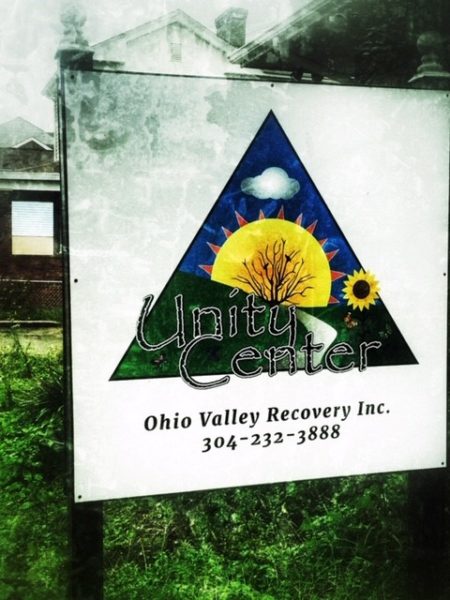
PLANS FOR BUILDING UNITY AND COMMUNITY
The group currently utilizes only the basement of the building, but plans are in the works to renovate the upper floor to house a large, versatile meeting space, a children’s area and offices. Mary is hopeful that the upstairs remodeling work will be completed in 2019. Currently, the basement has two meeting rooms, an office and a kitchen area.
Once those facilities are moved upstairs, the Unity Center plans to make the basement a community gathering space with a coffee bar, reading nook, pool tables and game areas. Mary believes that isolation and lack of meaningful connection with others is one of many reasons that people turn to drugs and alcohol, and it is her hope that the center can become a social hub for the recovery community. This second phase of the renovations is expected to be completed by 2021. All of Unity Center’s expenses are paid through grants, fundraisers and donations. The facility is operated by Mary, who is the center’s only paid employee, and a board of directors that consists of nine community members from all walks of life. According to Mary, the group is now soliciting new board members, and anyone who may be interested is invited to contact her by phone at 304-232-3888 or by email.
PROGRAM OFFERINGS
The Unity Center offers a variety of support options for those who choose to utilize their services. In addition to spiritually-based traditional 12-step programs such as Narcotics Anonymous and Alcoholics Anonymous, the Unity Center offers alternatives such as Refuge Recovery, a Buddhist-inspired support group; ACA (Adult Children of Alcoholics); SMART Recovery, which uses a science- and evidence-based methodology; and DRA (Dual Recovery Anonymous), which is support for those with both an addiction and a mental illness diagnosis. There are also classes in parenting, life skills, and arts and crafts that meet at the center. Public computers are also available for clients’ use.
Once the building renovations are complete and the group has more room to host meetings and events, Mary has plans for a number of other initiatives. She will be increasing programming for children — those who are living with a parent in recovery and those who are not. There will be new class offerings for adults, including cooking classes. In addition, she envisions space that will be available to rent to counselors, attorneys and other professionals who work with the recovery community. Doing this would enable these professional services to come directly to those who need them. Mary also plans to have a laundry area where clients who are job hunting can bring their interview outfits to be laundered and ironed. Depending on their housing situation, clients may not have the ability to do something as simple as wash their clothes before an interview. With this service available to them, clients can focus on mentally preparing for their interviews, confident that their physical appearance will be clean and crisp.
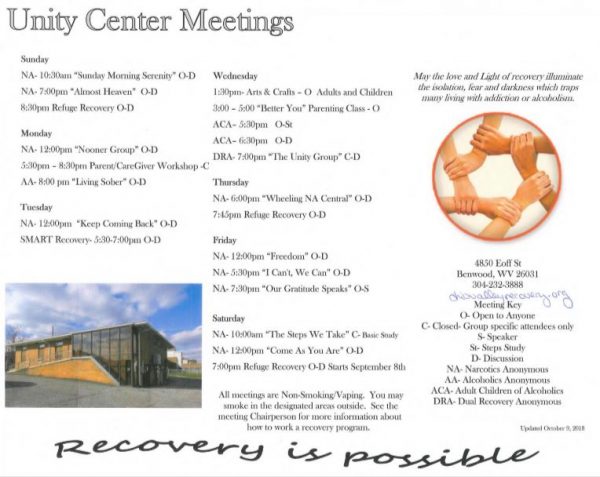 HOW DID WE GET TO THIS POINT IN WEST VIRGINIA?
HOW DID WE GET TO THIS POINT IN WEST VIRGINIA?
“There are many factors that have led to the current state of crisis,” Mary says. She believes that trauma is most often the main trigger for substance use. Trauma can be physical pain, or it can be something such as the death or loss of a significant person or relationship; physical, mental or sexual abuse; or some childhood event that haunts a person. Often people turn to drugs or alcohol to numb the pain or memories of these events.
Mary also cites pharmaceutical companies, the influx and availability of certain drugs and other influences that have converged in a perfect storm of sorts to set this crisis in motion. Mary says she’s read studies proving that the state of West Virginia was actually targeted by pharmaceutical companies for opioid sales because our state’s economy is built on blue-collar industries where physical injuries are common.
Mary also tells Weelunk that evidence is being uncovered that indicates these pharmaceutical companies were likely well aware of the extremely addictive nature of the drugs they were peddling.
The question is often raised, “Why can’t those who use substances just choose to stop?” Mary makes a brilliant comparison between drugs and cell phone use. “I tell people who ask that question to leave their cell phones home on their bedside stands for just one day. Then tell me how many times they think about it throughout the day, how many times they think they hear it ring or feel it vibrate. How many times do they reach for it, only to be hit with the realization that it’s not in their pocket? We’ve all become somewhat addicted to our phones. If you would find it difficult to be without yours for a day, then you get an idea of what a drug addict might experience.”
WHAT DOES SUCCESS LOOK LIKE?
When asked what motivates her in her work, Mary responded without missing a beat: “The small day-to-day celebrations!”
A client recently visited her office, excited to have a water bill with his name on it that he was about to pay. When your life has been wrecked by addiction, something as simple as being able to procure utility services and have the means to pay the bills is cause for celebration. Mary says that the center also recently was able to supply clients with donated cleaning supplies. Many were overcome with gratitude because they finally had a home in which to use those supplies.
 LONG-TERM RECOVERY DOES HAPPEN
LONG-TERM RECOVERY DOES HAPPEN
In order to be successful in recovery, people must give up the friendships that are in any way related to their substance use. That is one of a myriad of reasons why some people don’t choose recovery. The Unity Center’s mission is to be a place of community and fellowship for those who do make that choice. “It’s the little things that add up to community,” Mary says.
 Mary mentions a recent town hall meeting held at the Unity Center where Senator Joe Manchin addressed an audience of more than 200 people about the opioid epidemic in our state. At one point after the news cameras stopped rolling, Mary says that the moderator asked for all those currently in recovery to please stand. She said there was an audible rush of air from the sheer number of audience members who rose to their feet.
Mary mentions a recent town hall meeting held at the Unity Center where Senator Joe Manchin addressed an audience of more than 200 people about the opioid epidemic in our state. At one point after the news cameras stopped rolling, Mary says that the moderator asked for all those currently in recovery to please stand. She said there was an audible rush of air from the sheer number of audience members who rose to their feet.
“You can recover from it, you can maintain it, and you can be successful,” Mary says. “We need to shift the stigma associated with addiction and recovery.”
For more information about the Unity Center, visit their website.
If you’d like to donate to their programming, visit their Facebook page.
• A lifelong Wheeling resident, Ellen Brafford McCroskey is a proud graduate of Wheeling Park High School and the former Wheeling Jesuit College. By day, she works for an international law firm; by night, (and often on her lunch breaks and weekends) she enjoys moonlighting as a part-time writer. Please note that the views expressed in her writing are solely her own and do not necessarily reflect those of anyone else, including her full-time employer. Through her writing, Ellen aims to enlighten others on causes close to her heart, particularly addiction, recovery and equal rights. She and her husband Doug reside in Warwood with their clowder of rescued cats, each of whom is a direct consequence of his job as the Ohio County Dog Warden. Their family includes four adult children, their spouses and several grandkids.


